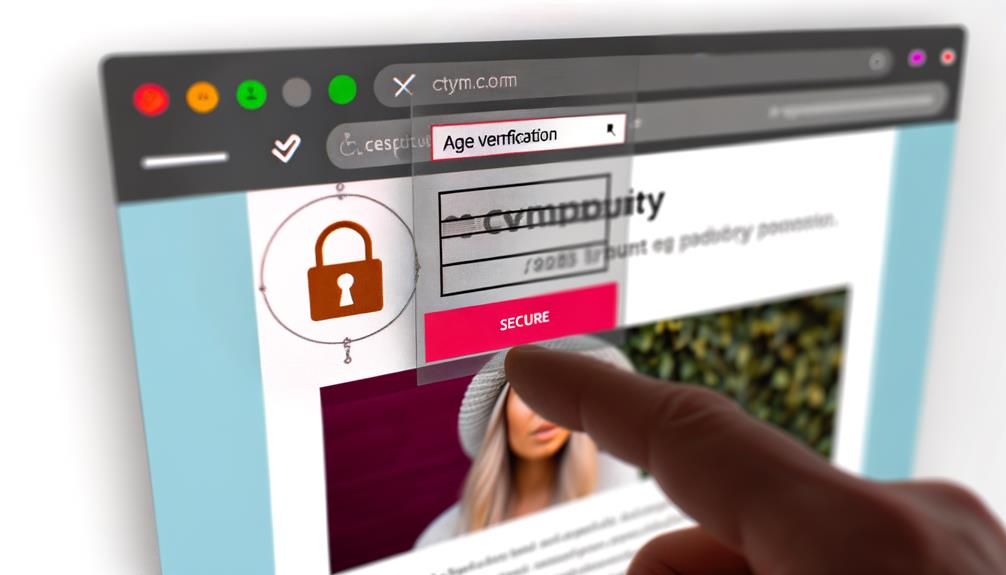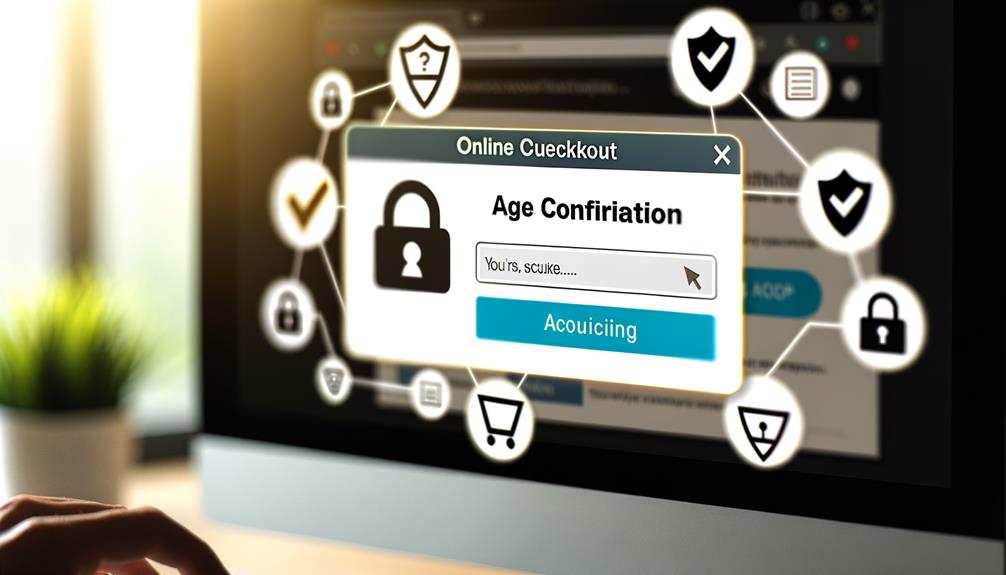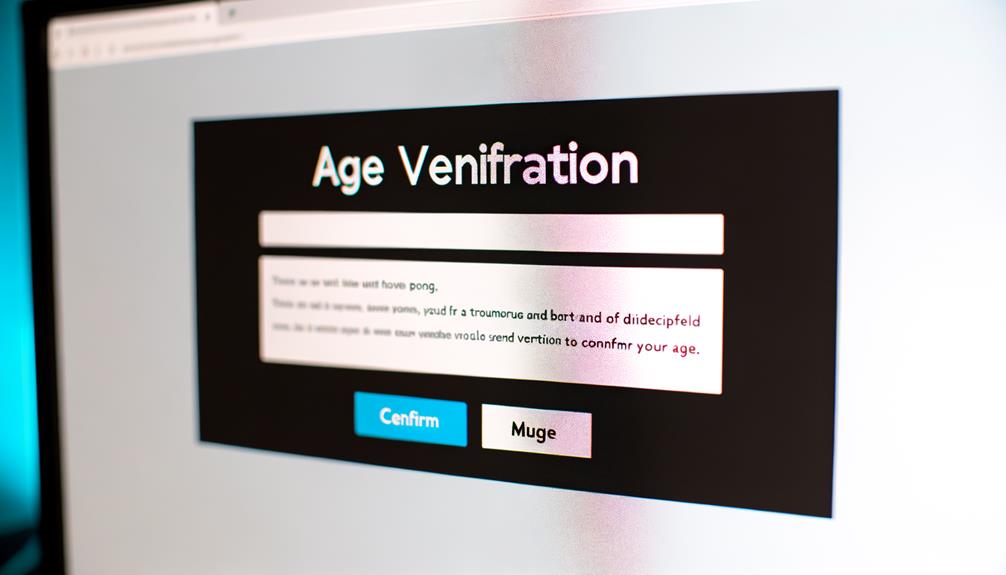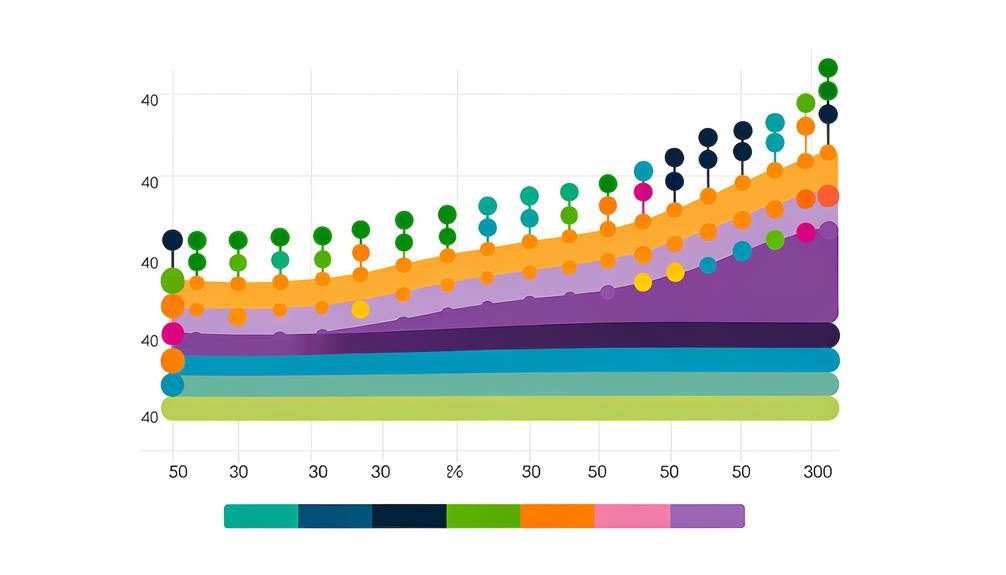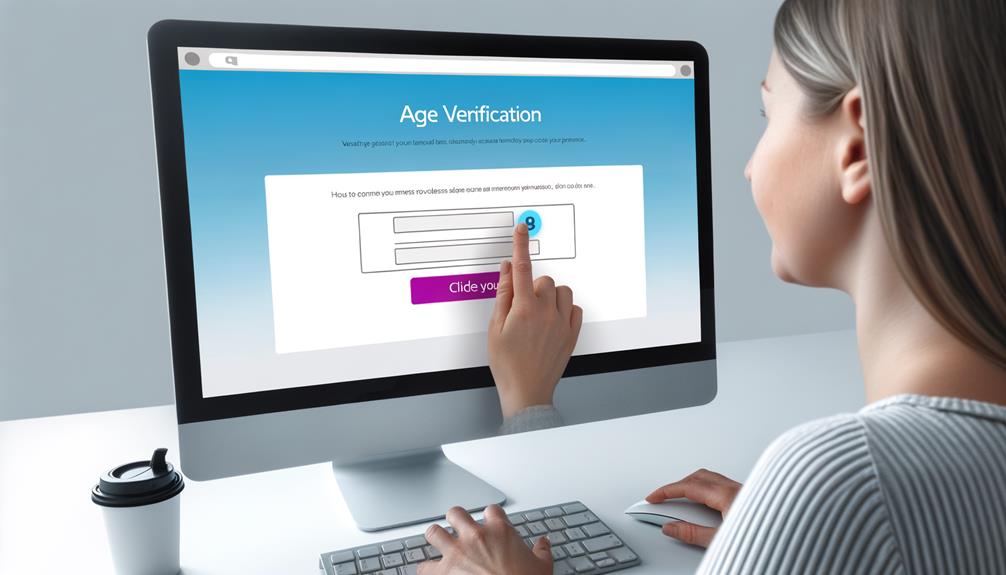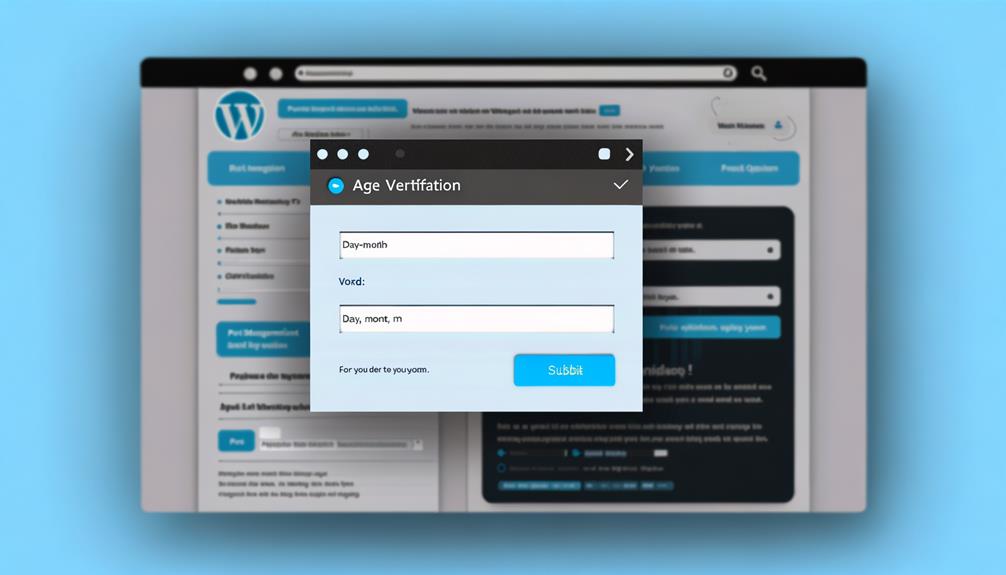How Age Verification Can Boost Trust and Credibility for Your Website
You may not realize it, but age verification can significantly impact the trust and credibility of your website.
Just think about the last time you visited a website and saw an 'age gate' pop-up before accessing certain content or products. It's a small but crucial step in ensuring that your website is compliant with regulations and standards, but its effects go far beyond legalities.
By implementing an effective age verification system, you can not only enhance the safety of your online environment but also build trust and credibility with your customers.
But how exactly does age verification achieve this, and what are the best practices for incorporating it into your website?
Key Takeaways
- Age verification is crucial for businesses offering age-restricted products or content as it helps protect minors and avoid potential penalties.
- Implementing robust identity verification processes, such as document-based verification and biometric verification, enhances accuracy, reliability, and regulatory compliance.
- Age verification showcases social responsibility and promotes a secure online space, balancing user experience with stringent requirements.
- Trust and credibility are enhanced through age verification, as it signals a commitment to delivering age-appropriate content, ensuring safety, and maintaining trust with users.
The Legal Importance of Age Verification
Ensuring legal compliance through age verification is crucial for businesses that offer age-restricted products or content, helping to protect minors and avoid potential penalties. Online age verification isn't just about abiding by age verification laws; it's also about safeguarding young individuals from accessing inappropriate content. By implementing robust identity verification processes, you can ensure regulatory compliance and uphold the legal age requirements. Document-based verification and biometric verification methods enhance the accuracy and reliability of age verification systems, bolstering your ability to prevent underage access.
For businesses in industries like alcohol, tobacco, gaming, and online dating, age verification isn't just a legal necessity; it's a moral imperative. It's about creating a safe and responsible online environment. By demonstrating a commitment to verifying the legal age of your users, you're not only preventing legal repercussions but also exhibiting social responsibility. Embracing age verification not only protects your business from potential fines but also showcases your dedication to promoting a secure and trustworthy online space.
Age Verification Methods and Solutions
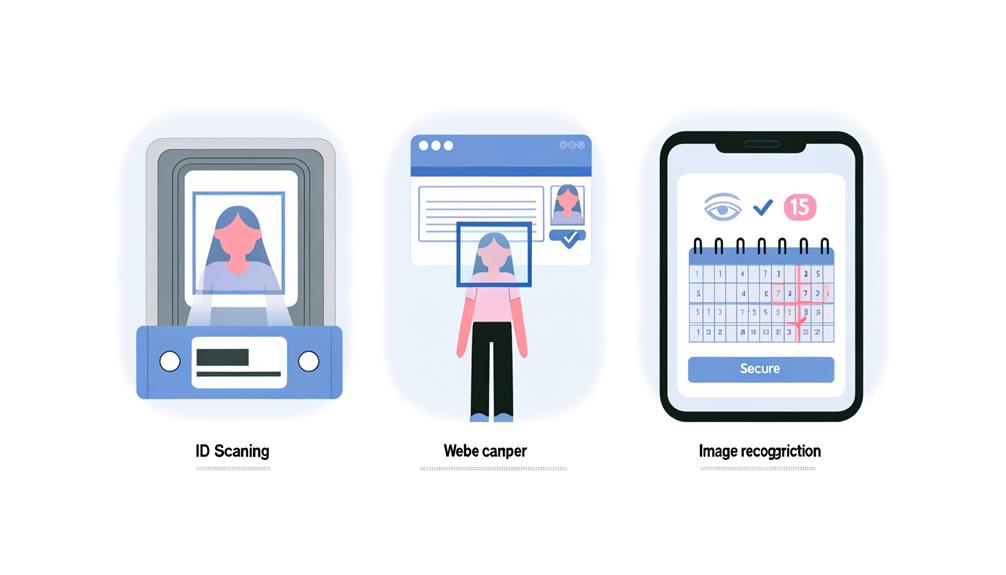
When implementing age verification methods and solutions, it's crucial to consider the accuracy and reliability of the chosen approach to ensure compliance and legal protection.
Online age verification can be achieved through various methods, including document checks, database checks, and age estimation algorithms.
Document checks involve verifying the individual's age through official identification documents such as driver's licenses or passports.
Database checks compare the individual's provided information against trusted databases to validate their age.
Age estimation algorithms assess likely age based on factors like behavior, social connections, and other online activities.
It's important to choose a method that offers high accuracy and regulatory compliance to ensure legal protection for your website.
By utilizing robust age verification solutions, you can't only prevent underage users from accessing age-restricted content but also build trust and credibility with your audience.
Effective age verification methods demonstrate your commitment to responsible online practices and can enhance the overall user experience on your website.
Enhancing User Confidence Through Age Verification

When users encounter an age verification system on your website, it immediately signals that you're serious about delivering age-appropriate content and ensuring their safety.
By implementing reliable age verification methods, you're not only complying with regulations but also building trust and confidence among your users.
This simple step can go a long way in enhancing the overall user experience and establishing your brand as a trustworthy and responsible entity.
Age-Appropriate Content
To enhance user confidence and ensure age-appropriate content, implementing an effective age verification system is essential for online platforms and retailers. Reliable age verification systems are crucial for ensuring the safety of minors and preventing them from accessing inappropriate content.
By incorporating age verification methods such as document-based verification and biometric verification, online platforms can ensure regulatory compliance and legal protection. This not only builds trust with customers but also demonstrates a commitment to child safety online.
Implementing age-appropriate content through robust age verification measures aligns with regulations like COPPA, emphasizing the importance of verifiable parental consent and addressing concerns about commercialization and inappropriate content.
Trust and Safety
Enhancing user confidence and ensuring safety online relies heavily on implementing robust age verification measures, pivotal for maintaining trust and credibility in the digital space.
By incorporating age verification into your online business, you not only adhere to legal requirements but also actively prevent minors from accessing age-restricted content. This not only safeguards minors from potentially harmful material but also demonstrates your commitment to creating a safe online environment.
Utilizing age verification methods such as date of birth verification, document-based verification, and biometric verification can significantly enhance the safety of your platform and build trust with your users.
The Impact of Age Verification on Online Security

Implementing age verification systems enhances online security measures, ensuring greater protection for users and compliance with regulatory standards. When it comes to online security, age verification plays a critical role in safeguarding both users and the digital service itself. Here's how age verification impacts online security:
- Protection of Minors: Age verification helps prevent minors from accessing age-restricted products and content, contributing to a safer online environment for young users.
- Regulatory Compliance: By implementing robust age verification measures, digital services can ensure compliance with regulations like COPPA, demonstrating a commitment to responsible and ethical practices.
- Safeguarding Personal Data: Age verification processes often involve the collection of sensitive information, making it crucial for companies to uphold stringent privacy policies to protect user data.
Incorporating age verification into your online security measures not only enhances compliance with legal standards but also contributes to the overall safety and integrity of your digital service. By prioritizing the implementation of effective age verification methods, you can bolster online security while fostering trust and credibility with your users.
Age Verification for E-commerce Websites
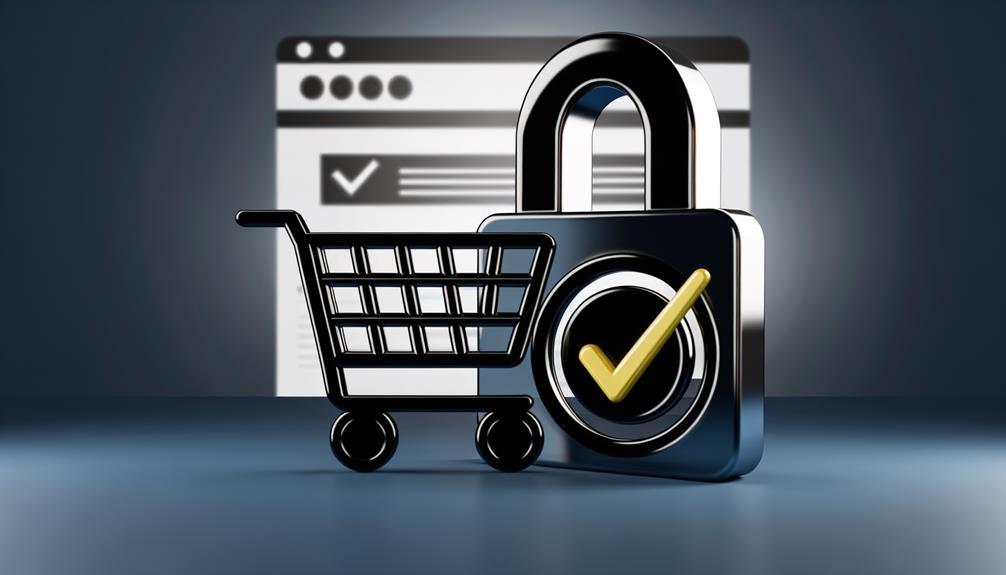
With the critical role age verification plays in safeguarding online security, e-commerce websites can significantly benefit from integrating robust age verification systems to ensure compliance and protect customers. Age verification is particularly crucial for e-commerce websites that sell age-restricted products such as alcohol, tobacco, or adult content.
By incorporating a reliable age verification process into your online store, you can create a safer online environment for both your customers and your business.
Implementing age verification on your e-commerce website can enhance customer safety and security, prevent fraudulent activities, and protect minors from accessing age-inappropriate products. Utilizing different age verification methods such as date of birth verification, document-based verification, and biometric verification can add reliability and accuracy to the process.
In addition to meeting legal requirements and regulations, integrating an effective age verification system can also help establish trust and credibility for your online store. This not only reduces the risk of legal penalties and fines but also prevents the sale of age-restricted products to underage individuals.
When implementing age verification, it's essential to balance user experience with stringent requirements, integrate with existing e-commerce platforms, and ensure data privacy and security.
Age Verification Best Practices
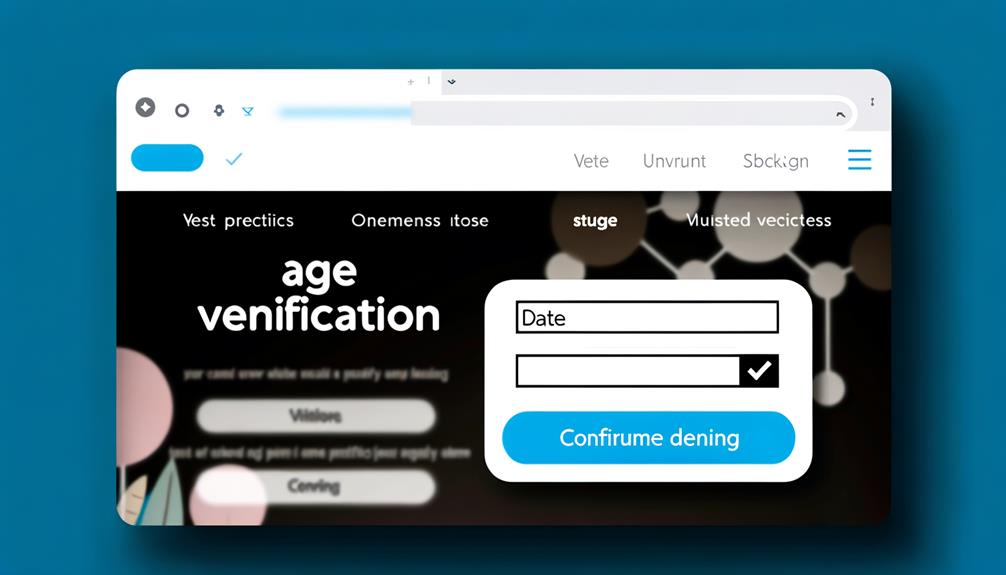
When implementing age verification, consider using a combination of methods such as:
- Date of birth verification
- Document-based verification
This will help ensure accuracy and reliability in the age verification process. Additionally, it is important to focus on providing a seamless user experience. By making the process smooth and user-friendly, you can minimize any potential frustration or friction for your customers.
Lastly, it is crucial to stay updated on legal compliance requirements. Laws and regulations surrounding age verification can vary by jurisdiction. By staying informed and adhering to the necessary guidelines, you can avoid any potential penalties or fines that may arise from non-compliance.
Age Verification Methods
To ensure effective age verification, consider employing a combination of identity attributes to accurately determine the individual's age.
You can implement age verification using various methods such as:
- Facial recognition technology
- Online age verification services
- Implementing age verification at checkout for online stores
Facial recognition technology can accurately verify a person's age by analyzing their facial features.
Online age verification services offer efficient and reliable age verification processes.
Implementing age verification at checkout for online stores ensures compliance with age restrictions for purchasing age-restricted products.
User Experience Considerations
Considering the importance of age verification methods discussed previously, optimizing the user experience for age verification best practices is crucial for ensuring smooth and reliable interactions with your website. When implementing age verification, it's important to consider the user's journey and make the process as seamless as possible. Here are some user experience considerations to keep in mind:
| User Experience Considerations | Description | Benefits |
|---|---|---|
| Clear and Simple Design | Ensure the age verification interface is intuitive and easy to understand. | Reduces user confusion and frustration. |
| Mobile-Friendly Design | Make sure the age verification process is optimized for mobile devices. | Enhances accessibility and convenience. |
| Transparent Information | Clearly communicate why age verification is necessary and how it benefits users. | Builds trust and credibility. |
| Error Handling | Provide clear instructions in case of verification errors and offer alternative verification methods. | Improves user satisfaction and prevents abandonment. |
Legal Compliance Requirements
Legal compliance requirements dictate the necessity of implementing effective age verification systems for businesses selling age-restricted products or services. To ensure legal compliance and prevent underage access, consider the following:
- Adhering to regulations: Compliance with laws like COPPA is crucial to safeguard children's privacy and online safety.
- Identity and age verification: Implement methods such as document-based verification and knowledge-based verification to confirm users' identities and ages.
- Government-issued ID: Utilize government-issued IDs for robust age verification, enhancing the reliability of your system.
Industry Applications of Age Verification
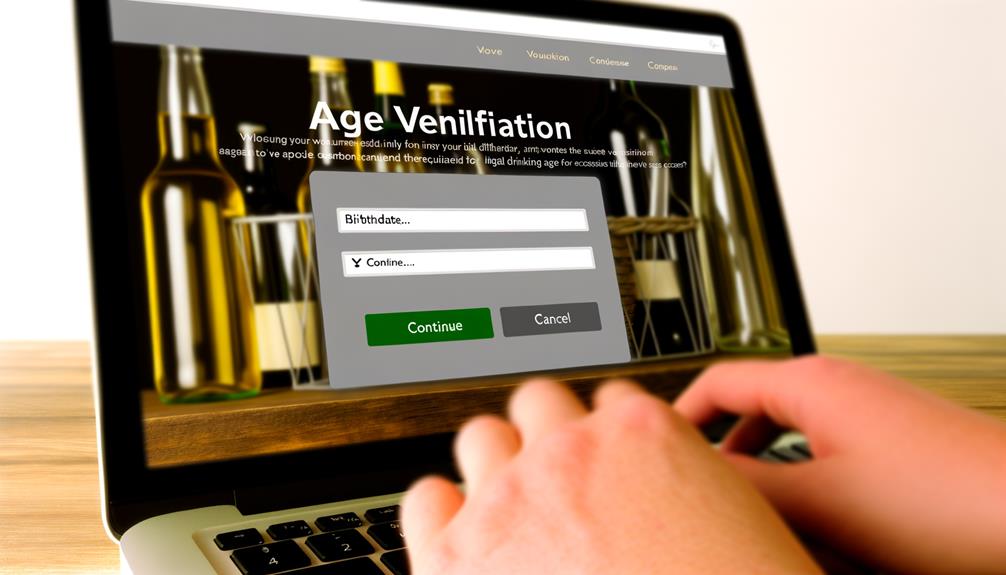
In various industries, age verification serves as a crucial tool for ensuring compliance with regulations and maintaining brand integrity.
Online gambling platforms rely on age verification to prevent underage individuals from accessing their services, which not only helps them adhere to legal requirements but also builds trust and credibility with their users.
Similarly, alcohol delivery services use age verification to ensure that they aren't selling age-restricted products to minors, thus safeguarding their reputation and fostering a sense of responsibility.
Ride-sharing companies also employ age verification to ensure the safety of both riders and drivers, creating a secure environment that users can trust.
Additionally, online dating apps utilize age verification to provide a safer and more secure experience for their users by restricting access to adults only.
Frequently Asked Questions
Why Is Age Verification Important?
Age verification is important because it ensures safety for users, compliance with legal regulations, and promotes online responsibility.
By verifying age, you protect underage individuals from accessing inappropriate content and safeguard against cyberbullying.
It also establishes trust and credibility for online businesses, as it demonstrates a commitment to user protection and regulatory compliance.
This builds confidence in your website and enhances your reputation as a responsible online retailer.
Do I Need an Age Verification on My Website?
You really should consider age verification for your website. It has legal implications, impacts customer experience, and protects user privacy.
It's also essential for meeting industry standards and building trust. By implementing age verification, you're not only following the rules but also creating a safer online environment.
This can help you gain credibility and trust, which is crucial for any website.
What Is the Age Verification Tool for Website?
You can use an age verification tool for your website to ensure user authentication and identity verification, especially for age restriction compliance and online safety. This tool helps meet compliance requirements by accurately determining users' ages, providing legal protection.
It's essential for industries with strict age regulations. By implementing this, you not only enhance security but also build trust and credibility with your audience, showing your commitment to maintaining a safe online environment.
Why Is Age Verification so Hard for Websites?
Age verification for websites is challenging due to the need to balance user experience with stringent verification requirements. Integration complexities with e-commerce platforms make it hard. Data privacy and security concerns also pose challenges. Adapting to evolving regulations and changing age verification standards can be tough.
False positives or negatives in the verification process are common. Overcoming these challenges requires a balance between compliance, customer trust, legal requirements, and technology.
Conclusion
So, now that you understand the importance of age verification, it's time to take action.
By implementing an effective age verification system, you can build trust with your customers, enhance online security, and demonstrate your commitment to social responsibility.
Don't wait until it's too late. Take the necessary steps to boost credibility for your website and create a safer online environment for everyone.
Your customers will thank you for it.
